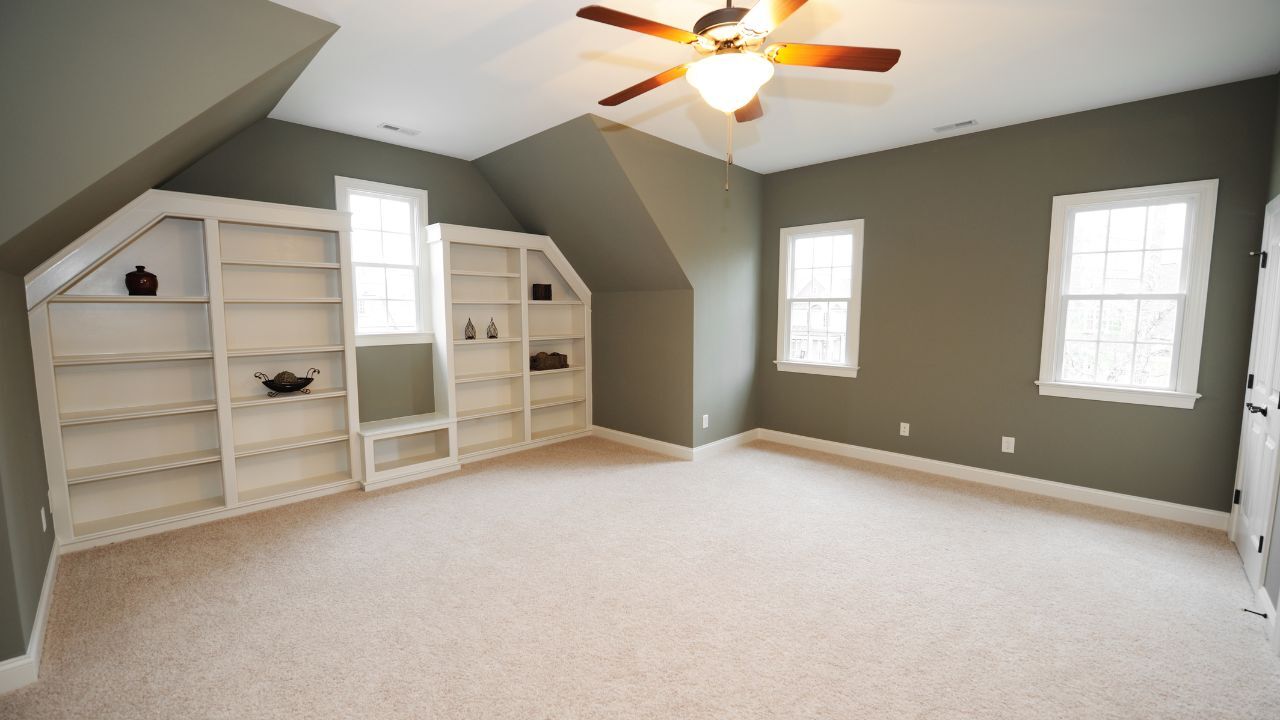 When preparing to sell a home, homeowners have several paths to consider. One option that is becoming increasingly common is selling a property as-is. This means the home is listed and sold in its current condition, without the seller completing repairs or renovations before closing. While this approach can offer convenience, it is important to understand both the benefits and potential trade-offs before making a decision.
When preparing to sell a home, homeowners have several paths to consider. One option that is becoming increasingly common is selling a property as-is. This means the home is listed and sold in its current condition, without the seller completing repairs or renovations before closing. While this approach can offer convenience, it is important to understand both the benefits and potential trade-offs before making a decision.
Pros of Selling a Home As-Is
Selling a home as-is can be an appealing choice for homeowners who want a simpler and faster selling experience. Because no repairs are required, sellers can avoid the time, stress, and expense that often come with renovation projects. This option may be especially helpful for those facing a tight timeline, managing an inherited property, or wanting to move forward without additional investments.
Another advantage is cost savings. Repairing a home can quickly become expensive, particularly if there are larger structural or mechanical issues. By selling as-is, homeowners can avoid contractor fees, materials, and unexpected costs that sometimes arise once repairs begin.
In many cases, selling as-is can also attract buyers looking for fixer-uppers or investment opportunities. These buyers are often prepared to take on renovations themselves, which can lead to quicker sales compared to homes requiring extensive updates.
Disadvantages of Selling a Home As-Is
Buyers typically factor repair costs into their offers, which may reduce the amount you receive compared to selling a move-in-ready home. In some situations, sellers may not achieve full market value because of the home’s condition.
Although selling your home as-is may be quicker and easier, it usually leads to a reduced sale price.
Selling as-is may also limit the number of interested buyers. Many homebuyers prefer properties that require minimal work, which means your listing may appeal mainly to investors or experienced buyers willing to manage repairs. This can narrow the buyer pool and affect competition.
It is also important to note that selling as-is does not remove legal disclosure requirements. Sellers are still responsible for disclosing known material defects. Failure to do so can lead to serious legal complications after the sale.
Key Considerations Before Selling As-Is
Before choosing this route, it is helpful to evaluate the home’s overall condition. Some minor repairs or cosmetic improvements may significantly increase buyer interest and allow for a higher selling price.
Understanding what truly needs attention can help you decide if selling as-is is the best strategy.
Consulting with real estate professionals is also essential. An experienced agent can provide insight into your local market, buyer expectations, and pricing strategies. Their guidance can help you position the property correctly and avoid surprises during negotiations.
Finally, weigh the financial impact carefully. Compare the estimated cost of repairs against the potential increase in sale price. In some cases, the convenience of selling as-is may outweigh the additional profit that renovations could bring, but this calculation depends on your goals and timeline.
Selling a home as-is can be a practical solution for homeowners seeking a faster, lower effort sale. However, it is important to understand the potential challenges, including pricing adjustments and a smaller pool of buyers. By assessing the property, seeking professional advice, and reviewing the financial trade-offs, you can make an informed decision that supports your selling goals.
 When you are searching for a home, it is easy to get excited about dramatic features like built-in home theaters. They look impressive, they photograph well, and they feel luxurious during a showing. But as real estate professionals, we see something different in day-to-day living.
When you are searching for a home, it is easy to get excited about dramatic features like built-in home theaters. They look impressive, they photograph well, and they feel luxurious during a showing. But as real estate professionals, we see something different in day-to-day living. Choosing a home often means choosing a school district, and for many families, this becomes one of the most important parts of the homebuying process. A strong school district can support your child’s education, shape daily routines, and even influence long-term property value. As real estate professionals, we help families evaluate school districts not just academically but practically, so they can make a choice that supports both their lifestyle and their investment.
Choosing a home often means choosing a school district, and for many families, this becomes one of the most important parts of the homebuying process. A strong school district can support your child’s education, shape daily routines, and even influence long-term property value. As real estate professionals, we help families evaluate school districts not just academically but practically, so they can make a choice that supports both their lifestyle and their investment. When you are shopping for a home, it is easy to be distracted by features that look impressive during a showing but do not add much value to your everyday life. As real estate professionals, we see buyers fall in love with flashy upgrades that end up unused while overlooking practical features that make a home truly comfortable. Knowing which features are overrated and which ones buyers genuinely rely on can help you choose a home that fits your lifestyle instead of one that simply looks good online.
When you are shopping for a home, it is easy to be distracted by features that look impressive during a showing but do not add much value to your everyday life. As real estate professionals, we see buyers fall in love with flashy upgrades that end up unused while overlooking practical features that make a home truly comfortable. Knowing which features are overrated and which ones buyers genuinely rely on can help you choose a home that fits your lifestyle instead of one that simply looks good online. When you start shopping for a home, location becomes one of the most important factors in the decision-making process. One choice buyers often overlook is whether the home is located next to commercial property. At first glance, living near shops, restaurants, or offices may seem convenient. But as real estate professionals, we know that commercial neighbors can bring long-term benefits as well as long-term challenges. Understanding the full impact helps you decide whether the location supports your lifestyle and your investment.
When you start shopping for a home, location becomes one of the most important factors in the decision-making process. One choice buyers often overlook is whether the home is located next to commercial property. At first glance, living near shops, restaurants, or offices may seem convenient. But as real estate professionals, we know that commercial neighbors can bring long-term benefits as well as long-term challenges. Understanding the full impact helps you decide whether the location supports your lifestyle and your investment. Virtual tours have become one of the most valuable tools in real estate. They give buyers the chance to explore a home from anywhere, view the layout at their own pace, and get a better sense of how the space flows. But virtual tours are not perfect. They can reveal things that standard listing photos cannot, and they can also hide details if you do not know what to look for. As real estate professionals, we help buyers understand how to use virtual tours wisely so they can make informed decisions before seeing a home in person.
Virtual tours have become one of the most valuable tools in real estate. They give buyers the chance to explore a home from anywhere, view the layout at their own pace, and get a better sense of how the space flows. But virtual tours are not perfect. They can reveal things that standard listing photos cannot, and they can also hide details if you do not know what to look for. As real estate professionals, we help buyers understand how to use virtual tours wisely so they can make informed decisions before seeing a home in person. When you find a home you love, it is easy to get swept up in the excitement. But before you picture furniture placement or favorite paint colors, it is important to understand what the insurance landscape looks like for the property. Homeowners insurance is not only required by most lenders, it also protects your investment, your finances, and your peace of mind. As real estate professionals, we advise buyers to ask key insurance questions early so they avoid surprises and choose a home that fits their long-term budget.
When you find a home you love, it is easy to get swept up in the excitement. But before you picture furniture placement or favorite paint colors, it is important to understand what the insurance landscape looks like for the property. Homeowners insurance is not only required by most lenders, it also protects your investment, your finances, and your peace of mind. As real estate professionals, we advise buyers to ask key insurance questions early so they avoid surprises and choose a home that fits their long-term budget. When you walk into a home, the smell is one of the first things you notice, even before you fully take in the layout or the finishes. Most buyers do not realize how much odors can reveal about a home’s condition. As real estate professionals, we encourage buyers to pay close attention to unusual smells, because even small odors can signal bigger problems hiding beneath the surface. Knowing which smells to take seriously can save you time, money, and future headaches.
When you walk into a home, the smell is one of the first things you notice, even before you fully take in the layout or the finishes. Most buyers do not realize how much odors can reveal about a home’s condition. As real estate professionals, we encourage buyers to pay close attention to unusual smells, because even small odors can signal bigger problems hiding beneath the surface. Knowing which smells to take seriously can save you time, money, and future headaches. Buying a home in an area with extreme heat comes with unique challenges that many buyers do not think about until after they move in. Hot climates can affect energy costs, home maintenance, long-term comfort, and even property value. As real estate professionals, we help buyers understand what to look for and how to choose a home that stays comfortable, safe, and cost-efficient in hotter regions. With the right preparation, you can make a smart purchase that supports your lifestyle and protects your investment.
Buying a home in an area with extreme heat comes with unique challenges that many buyers do not think about until after they move in. Hot climates can affect energy costs, home maintenance, long-term comfort, and even property value. As real estate professionals, we help buyers understand what to look for and how to choose a home that stays comfortable, safe, and cost-efficient in hotter regions. With the right preparation, you can make a smart purchase that supports your lifestyle and protects your investment. When it is time to sell your home, you do not always need major renovations to impress buyers. In fact, many small, affordable upgrades can create a big impact on your home’s resale value. As real estate professionals, we often see buyers fall in love with homes that simply feel updated, welcoming, and well cared for. With the right improvements, you can boost your home’s appeal and stand out in a competitive market without spending a fortune.
When it is time to sell your home, you do not always need major renovations to impress buyers. In fact, many small, affordable upgrades can create a big impact on your home’s resale value. As real estate professionals, we often see buyers fall in love with homes that simply feel updated, welcoming, and well cared for. With the right improvements, you can boost your home’s appeal and stand out in a competitive market without spending a fortune.